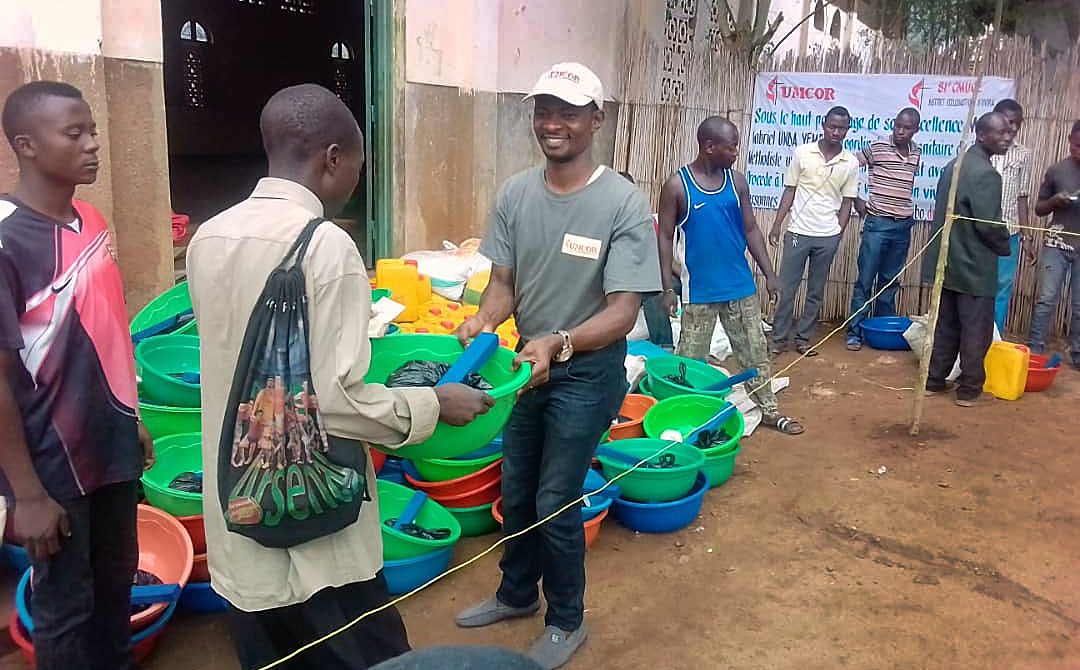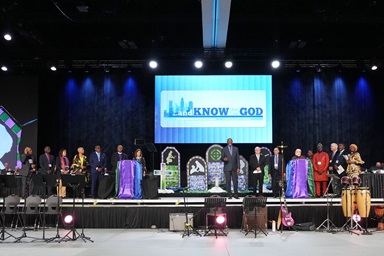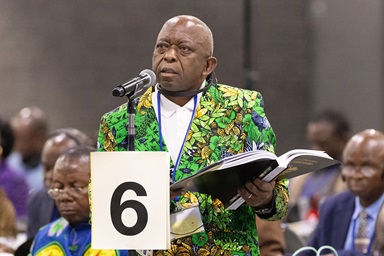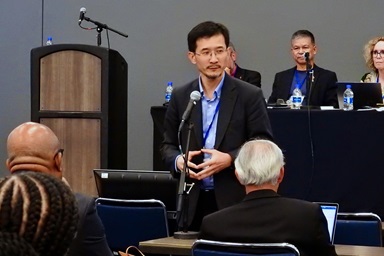Following community land disputes in Congo, thousands of people fled to Uvira in the South Kivu Province. The United Methodist Church has offered shelter to more than 2,500 displaced people in the past four months, according to church records.
Conflicts between Banyamurenge and Bafuliro tribes extend from the highlands of Bijombo, a village in the Uvira Ecclesiastical District, to South Kivu.
Issanda Walubila, Uvira District superintendent, said the Uvira District Council, in collaboration with the emergency office in East Congo, registered more than 500 people in November 2018.
“Some of the internally displaced people lived in United Methodist churches and schools in Uvira, while others stayed with host families,” he said.
Jean Tshomba, coordinator of emergencies and disasters in East Congo, said that internally displaced people from the Kamwina Nsapu rebellion were observed in Kasai Province in the Central Congo Episcopal Area, while others are in the Ituri Province and Yumbi.
To address the seriousness of the situation, at the end of 2018, the United Methodist Committee on Relief approved emergency funding through Solidarity Grants to the four episcopal areas within Congo to address the needs of internally displaced peoples. Some of the immediate needs responded to through the grants included food and hygiene items.
Alexandre Mwisha heads the Nyamianda neighborhood in Uvira where most of the internally displaced people from Bijombo live.
“I congratulate The United Methodist Church,” Mwisha said, “for this act on the internally displaced following the tribal conflicts. I encourage the church in this work.”
Walubila especially expressed thanks to UMCOR for “helping the internally displaced, who have been comforted in their suffering. Some have lost all their belongings, and their homes were burned.”
Robert Isenge, a United Methodist father of eight, lives in the high plateau of Bijombo.
“The church has just shown the act of charity toward us,” he said. “This has strengthened us, and I hope that God will bring us lasting peace in our living environment.”
Praying that peace would prevail in all areas of tribal conflict, Bishop Gabriel Unda Yemba of the Eastern Congo Episcopal Area called for a general mobilization for the internally displaced people from Bijombo to return to their homes.
Kituka Lolonga is a communicator in the Kivu Conference. News media contact: Vicki Brown at (615) 742-5470 or newsdesk@umcom.org. To read more United Methodist news, subscribe to the free Daily or Weekly Digests
Like what you're reading? Support the ministry of UM News! Your support ensures the latest denominational news, dynamic stories and informative articles will continue to connect our global community. Make a tax-deductible donation at ResourceUMC.org/GiveUMCom.




